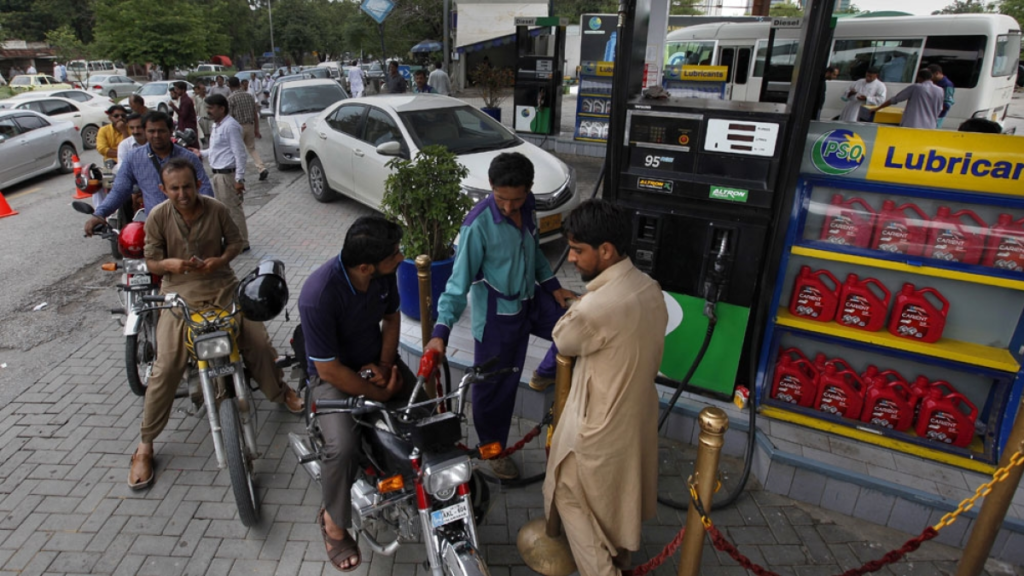In a dynamic move that’s reverberating through the energy sector, Shell Pakistan Limited (SPL) is set to undergo a significant transformation. This transformation marks a strategic shift in its operations, aligning with broader global restructuring efforts. The decision to sell a controlling stake in SPL comes as a response to local challenges, including exchange rate fluctuations, the devaluation of the Pakistani rupee, and overdue receivables.
However, the story goes beyond Shell Pakistan, as Wafi Energy, a wholly-owned affiliate of Asyad Holding Group in Saudi Arabia, emerges as a key player. Wafi Energy is on the brink of acquiring a substantial stake in SPL, signifying its strategic entry into the South Asian market.
As this shift unfolds, the blog will delve into the intricacies of Shell Pakistan’s stake sale and explore how it’s shaping the future of the energy sector in Pakistan. Let’s begin by understanding the details of the stake sale and the challenges faced by Shell Pakistan.
Introduction
In a dynamic move that’s reverberating through the energy sector, Shell Pakistan Limited (SPL) is set to undergo a significant transformation. This transformation marks a strategic shift in its operations, aligning with broader global restructuring efforts. The decision to sell a controlling stake in SPL comes as a response to local challenges, including exchange rate fluctuations, the devaluation of the Pakistani rupee, and overdue receivables.
Understanding the Stake Sale
The stake sale of Shell Pakistan Limited (SPL) is a pivotal event that is reshaping the energy sector in Pakistan. This section delves into the finer details of this transformative move. SPL’s decision aligns with its global restructuring strategy and responds to local challenges. As a result, Wafi Energy, an affiliate of Asyad Holding Group in Saudi Arabia, is poised to acquire a substantial stake in SPL, marking its strategic entry into the South Asian market.
This development signifies a significant shift in ownership and operation within the energy sector in Pakistan. It’s essential to comprehend the intricacies of this stake sale and its implications for both Shell Pakistan and the broader energy industry.
Challenges Faced by Shell Pakistan
Shell Pakistan Limited (SPL) encountered a series of challenges in the year leading up to its stake sale. These challenges played a crucial role in shaping the decision. Exchange rate fluctuations, the devaluation of the Pakistani rupee, and a buildup of overdue receivables presented formidable obstacles.
Exchange rate fluctuations are a common issue in international business, affecting the revenues and expenses of multinational corporations like Shell. The devaluation of the Pakistani rupee further complicated matters, impacting the profitability of SPL’s operations in the country. Additionally, the accumulation of overdue receivables strained the financial health of the company. These challenges underlined the need for a strategic shift, leading to the stake sale and setting the stage for Wafi Energy’s entry into the South Asian energy market.
Emerging Dynamics in Pakistan’s Energy Sector
The stake sale of Shell Pakistan Limited (SPL) has sparked a wave of emerging dynamics in Pakistan’s energy sector. Competitors such as Pakistan Refinery Limited (PRL) and Air Link Communication (AIRLINK) have expressed keen interest in acquiring a significant stake in SPL. This not only highlights the strategic value of SPL but also demonstrates the potential for transformative changes in the energy industry.
Furthermore, the potential bid from Saudi Aramco, a global energy giant, for Shell Plc’s assets in Pakistan adds another layer of intrigue to the unfolding story. Should this bid materialize, it could reshape the energy landscape in Pakistan, potentially leading to collaboration on a larger scale and the introduction of new technologies and practices. As the sector experiences these shifts, it’s imperative to closely monitor and analyze these emerging dynamics to understand the implications for the future of energy in Pakistan.
Looking to the Future
As Shell Pakistan prepares for a change in ownership, the coming months will undoubtedly witness crucial developments in the country’s energy sector. The energy landscape in Pakistan is at a pivotal juncture, with multiple players vying for a piece of the market and the potential entry of a global giant, Saudi Aramco.
What remains certain is that the future of energy in Pakistan is poised for significant transformation. With an evolving competitive landscape and the infusion of new capital and expertise, the sector may see improved infrastructure, technologies, and services. Consumers can expect a more diverse and dynamic energy market, with potential benefits ranging from increased efficiency to a broader range of choices. The stakeholders, including Shell Pakistan, Wafi Energy, and potential bidders, are set to shape the energy industry’s future in Pakistan, and it’s a journey worth following closely.
Conclusion
The sale of Shell Pakistan’s stake to Wafi Energy is not just a corporate transaction; it’s a catalyst for change in Pakistan’s energy sector. Challenges and opportunities are converging, and as the industry undergoes a transformative shift, the road ahead promises to be dynamic and exciting. Stay tuned for updates on this unfolding narrative as Pakistan’s energy sector charts a new course into the future.









